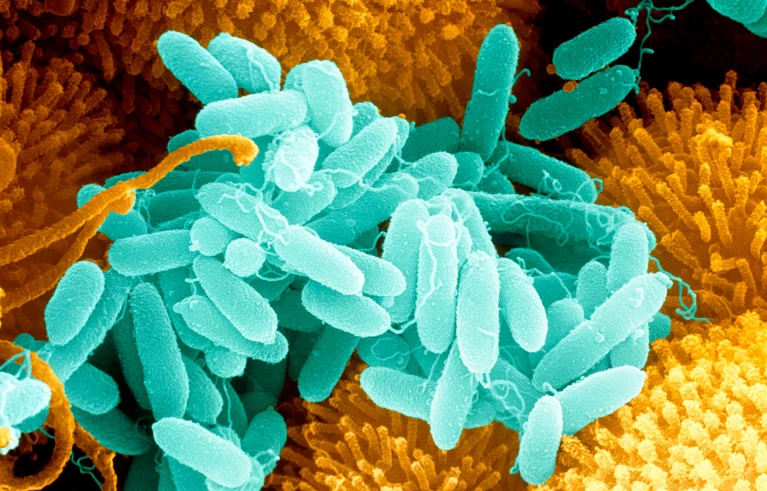The bacterium Pseudomonas aeruginosa is usually an opportunist bacteria that causes infection in patients. Researchers from the United Kingdom took a culture of P. aeruginosa from a wound and found an enzyme that was able to break down a plastic that is commonly used in hospitals. They called this enzyme Pap1, which is the only enzyme not from environmental bacteria that has the ability to break down polycaprolactone plastic. To further study this new enzyme they inserted the gene that codes for the enzyme into E. coli to test its isolated properties. The conclusion being that the E. coli was also able to break down the PCL plastic along with plastic beads. On the other hand the P. aeruginos without the enzyme was no longer able to break down the plastics. This is a scare for the medical world as the combination of degrading plastic with a bacteria that can cause infections creates complications with sterilization. With this new founding aseptic techniques may need to be updated in order to combat this enzyme.

The fact that a pathogenic bacterium like P. aeruginosa can break down hospital plastics raises concerns for medical safety and sterilization practices. Pap1 could help lead to biodegradable plastic research, however its presence in clinical settings is definitely something people should keep a close eye on.
ReplyDeleteHey Jacob, this post was really eye-opening! I had no idea that bacteria was capable of breaking down plastic. It's very impressive how the researchers were able to isolate the enzyme and test it using E. coli, especially because it worked! I do agree with you, this could definitely impact hospitals plastics which is very scary and unsanitary. This just opens an even bigger window for infections in hospitals. Hopefully hospitals can figure out a way to keep everything more sterilized for the safety of everyone going in and out of there.
ReplyDelete